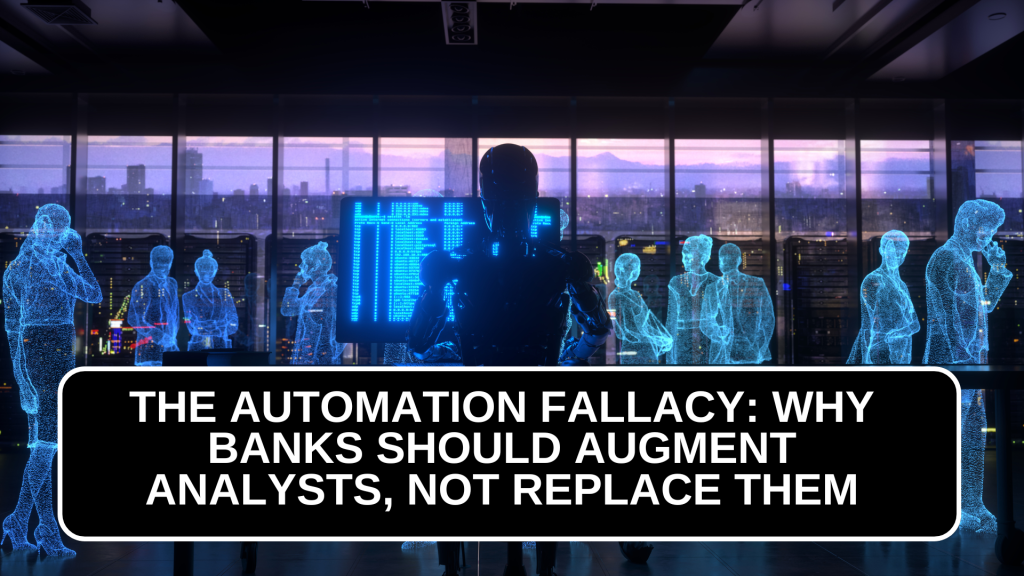A common myth: AI reduces headcount. In financial services, the opposite is true. The real value of AI lies in augmenting human expertise, not replacing it.
The Myth vs Reality
| Misconception | Reality |
| AI replaces analysts | AI augments them with superpowers |
| Automation = efficiency | Augmentation = insight + faster decisions |
| AI cuts cost | AI drives growth by enabling smarter analysis |
Data Snapshot
- Firms that use AI to augment analysts see productivity gains of 20–30% (McKinsey, 2024).
- Augmented fraud analysts detect 40% more anomalies than automation-only systems (PwC, 2024).
- Wealth managers using AI insights grow client retention by 15–20% (Accenture, 2024).
The Augmentation Advantage
- Fraud Detection – AI flags anomalies; humans investigate context.
- Market Analysis – AI scans billions of data points; analysts interpret signals.
- Wealth Management – AI personalizes advice; advisors build relationships.
Risks of Over-Automation
- False positives → Customer frustration.
- Loss of expertise → Humans atrophy without context.
- Reputational risk → “Computer-only” decision-making erodes trust.
Conclusion
The real AI advantage in finance is augmentation, not automation. Banks that give analysts “superpowers” will outperform those chasing staff reductions. AI is a force multiplier, not a replacement.
References
- https://www.mckinsey.com/industries/financial-services/our-insights/ai-in-banking
- https://www.pwc.com/us/en/services/consulting/analytics.html
- https://www.accenture.com/us-en/insights/banking/future-banking-ai
https://www.accenture.com/us-en/insights/banking/future-banking-ai






